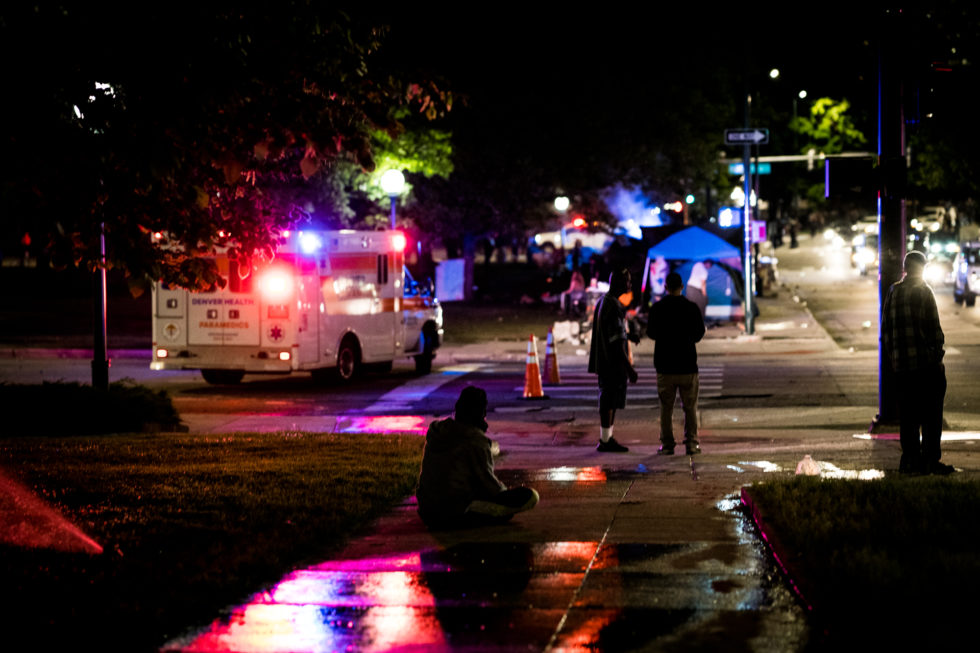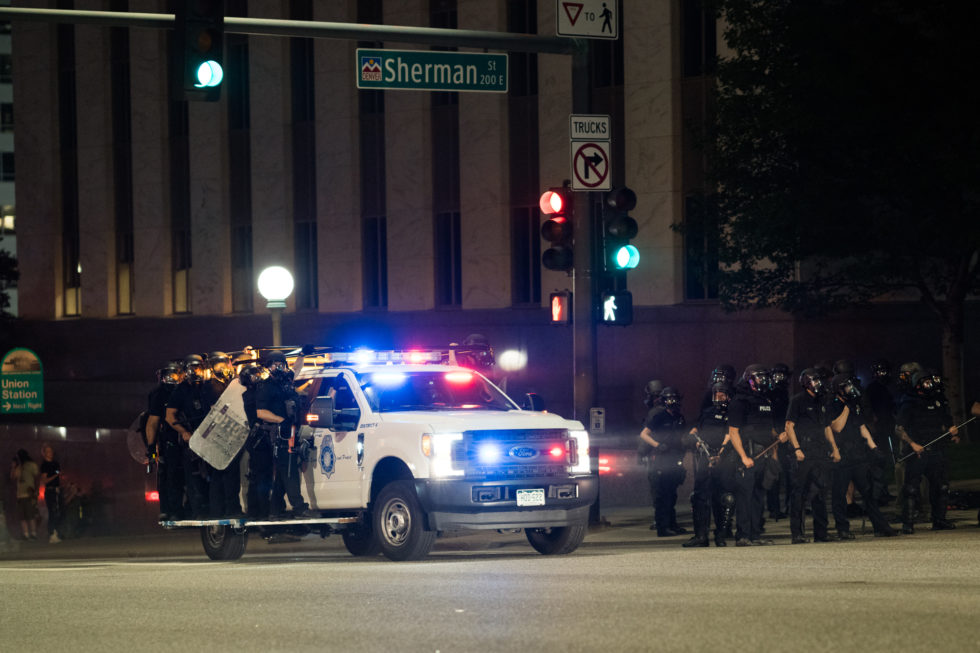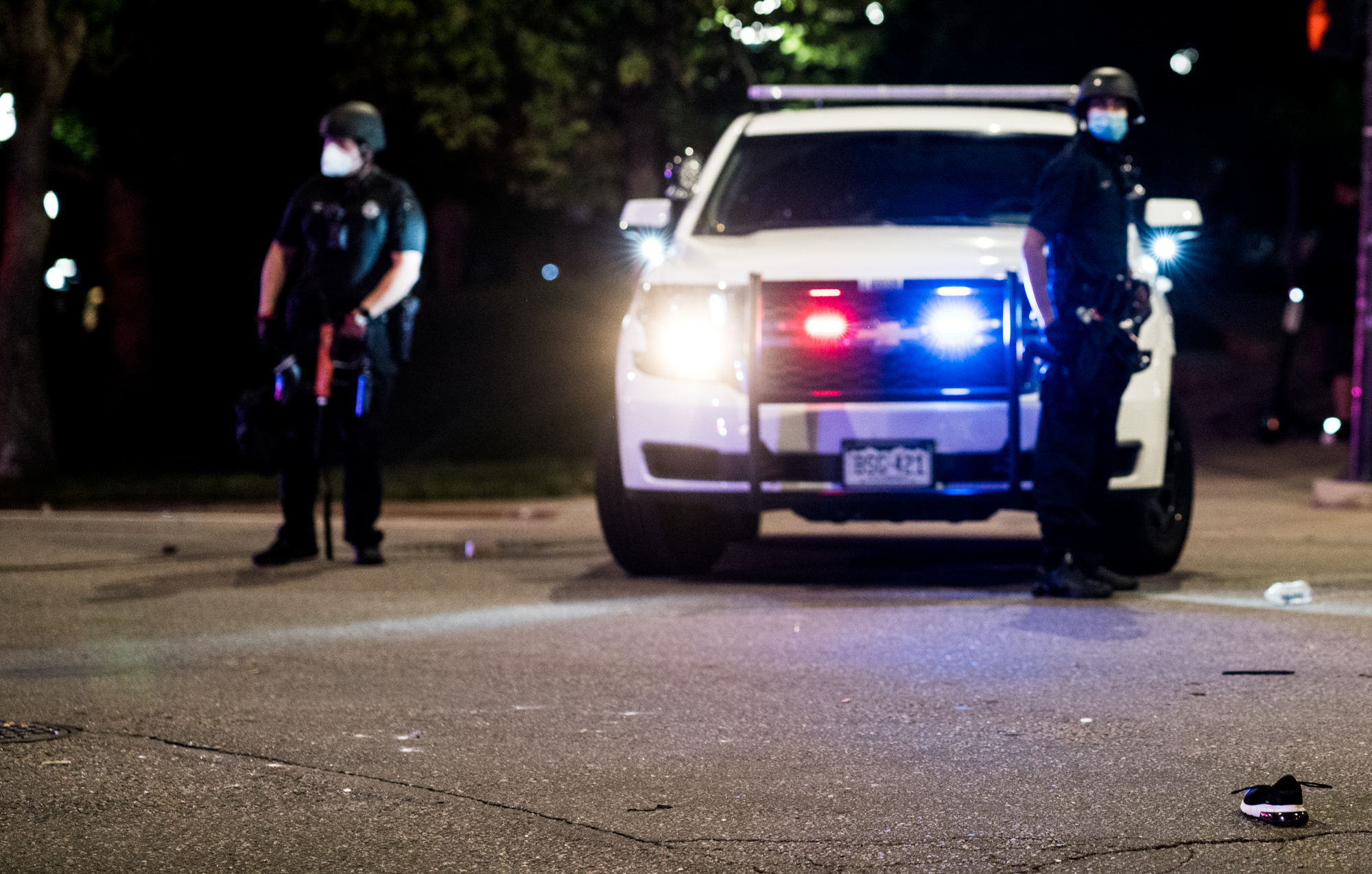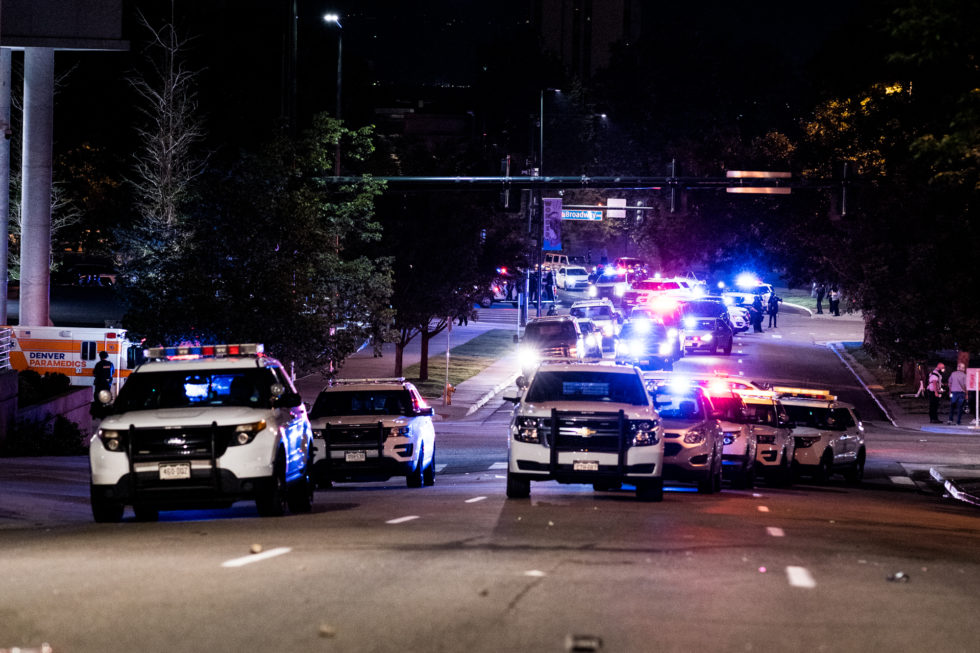Even though a sweeping police accountability bill (SB20-217) passed both the Senate and House of Representatives and will be signed into law by Governor Jared Polis in less than a month, there is still a massive amount of work to be done. It’s going to take years to implement solutions to systemic racism, implicit bias and excessive force in America’s police departments. With the new police accountability bill, there is a lot of skepticism about whether it is enough to radically change the way police serve and protect their communities, regardless of the color of a civilian’s skin.
Colorado may have made history with the passage of the bill, but nationwide protests show that demand for defunding the police may overshadow the incremental changes that lawmakers are negotiating. People who support defunding the police as a possible solution argue that armed officers don’t need to respond to every public safety call, while opponents warn of a police-less world that descends into anarchy. So what does defund the police mean to Denver specifically?
Defund the Police’s Demands

Even though the phrase might make some people fear the demise of public safety, Defund the Police (DTP) is aimed at improving it. The main goal is to divest funds from the police departments and correctional facilities in order to invest money into social programs that respond to calls in the field without using armed officers. Many supporters also cite the violence displayed by law enforcement at peaceful protests as a driving factor.
Many DTP movements throughout the country, including the one proposed by Minneapolis City Council, are looking to the nonprofit based in Eugene, Oregon called Cahoots as an example of how to properly manage part of this task. According to a NY Times article, Tim Black, the program’s operations coordinator said, “Cahoots employees responded to more than 24,000 calls for service last year — about 20 percent of the area’s 911 calls — on a budget of about $2 million, probably far less than what it would cost the Police Department to do the work.”
Mari Newman, attorney at Killmer, Lane & Newman LLP and a celebrated civil rights litigator, said that many of the cases she’s had were for individuals who never should have been contacted by the police to begin with. She mentioned Michael Marshall, Elijah McClain and Marvin Booker as prime examples of times when “police shouldn’t be responding to these calls.” Whether it’s because it’s racially motivated or an issue of mental health or homelessness, armed law enforcement as the primary point of contact is simply inappropriate.
Representative Leslie Herod, one of the main sponsors of SB20-217, has openly supported the demands for DTP despite the fact that critics of the bill argue it will cost the departments too much money to implement. In a virtual town hall discussion on Fox31 News on June 16, Herod explained that defunding the police was about disincentivizing programs that harm communities and putting a stop to our reliance on incarceration to solve societal problems. DTP, to her, does not interfere with the laws laid out in the new bill because funds going toward body-cam deployment and upkeep aren’t the same funds DTP wants to reinvest somewhere else.
“I support divestments 100% and I believe [SB20-217] is in line with that. I support the call for community-based approaches,” Herod said to 303. She added that “I understand the frustration or lack of trust that this bill will make a difference because we’ve seen so many officers get off and go back to working in their same post. I get that and understand where that skepticism comes from. I support the community’s calls for a re-thinking of how we can police in our own communities.“
Divesting money from law enforcement does not mean that law enforcement will no longer exist. It means that the “public safety” budget will be appropriated to better serve public safety by spending money on social welfare over militarized weapons, new cars and excessive overtime pay.
Denver City Councilman Chris Hinds has been outspoken about his stances regarding local police accountability and especially his support of DTP, even going so far as to attend and document the protests in his own district day and night. One of his DTP demands is in opposition to the 1033 program — part of the 1997 National Defense Authorization Act passed under the Clinton administration — that channels military equipment to local law enforcement agencies. More than $7 billion in weapons and other equipment has been transferred to civilian law enforcement since the late 1990s, according to this article from TechCrunch, under the 1033 program. Hinds has publicly called for Denver to withdraw from all 1033 agreements.
Although there is no clear leadership in Denver about DTP, it’s clear there is some consensus about the demands. Director Tay Anderson, one of the most influential leaders of Denver’s peaceful protests and a board member of Denver Public Schools, recently spearheaded the successful removal of Denver Police Department and its School Resource Officers from all the school campuses. He wants the $750,000 contract to go toward struggling students and resources for mental health support instead.
This is all amidst growing concern over the economic fallout from coronavirus, which is yet to be fully realized. At the beginning of May, Governor Jared Polis announced some steep budget cuts and hundreds of millions lacking for programs like health insurance for children, comprehensive care for adults with disabilities, substance abuse treatment, education in youth detention centers, child welfare hotlines and more. If budget cuts first affect some of the issues we are trying to address (substance abuse treatment, for example) without using police, is the budget for policing and public safety recession-proof? Or is this the perfect opportunity to slash the police and correctional facility budgets and reallocate funds?
What Does Denver Spend on Policing?

When researching budgets for policing in Denver, the first place to start is the Mayor’s office annual budget. Here you’ll find the actual expenditures from the prior year next to estimated expenses for the current and coming years. Police operations nest under the label “public safety” which also includes fire operations, county courts, district attorneys, sheriffs and other safety management programs like 911 communications. In 2018 (the last year that actual expenditures have been reported at this time), public safety programs spent $83,370,128 in Denver.
At the same time, according to reports from the Office of the Independent Monitor (OIM) — a department beneath the Mayor’s office that is designed to hold law enforcement accountable — complaints against sheriffs in Denver raised significantly in 2018 and the perceived trust from teens and youth in law enforcement fell, despite an upward trend in previous years. Did that $83 million go as far as it needed to, or was it misappropriated?
As of December 2019, it was reported that the Denver Sheriff Department (DSD) spent $26,624 a day on overtime, which is surprisingly a decrease from previous years. Part of the reason for that, according to the department, was a lack of new recruits and officers to fill time slots. But the problem of excessive overtime pay goes back years, to a time when the city was hiring new officers and civilian staff members in the hundreds. Police overtime pay, funded by taxpayers, went from $2.4 million in 2014 to $2.9 million in 2015 while they continued to hire nearly 400 new employees. Under the logic of DPD and DSD, more overtime pay should equate to fewer new hires and yet the evidence says otherwise.
Also, Police departments across the country are consistently criticized for practices of civil forfeiture. In the Denver Mayor’s budget or any other legal text, you might read it as a “property confiscation fund.” This source of funding for the police departments is gathered from seizing property from civilians and selling it off, although civilians don’t need to be convicted of anything for it to happen to them, just suspected to be involved in criminal activity. In Colorado, only 50% of the proceeds from selling forfeiture objects or property goes to law enforcement. But between 2015 and 2017, law enforcement agencies across Colorado seized more than $8 million in assets.
In 2018, civil forfeiture profits allowed Denver law enforcement to spend $1,044,042 although the budget sheets don’t show any more details about what was purchased with the funds. In 2019, a Journalism professor at Southern Illinois University Carbondale wrote an article about how money seized by civil asset forfeiture is often used to buy exercise equipment, squad cars, military-grade equipment and, in one case, a margarita maker for the office.
Representative Herod mentioned that in her first year as an elected official, she tried running a bill to change civil forfeiture. “I think that just needs to go,” she said, and so “I’m working on that for next year.”
The DPD stated that “the Department is committed to the continued reevaluation of our operations — policies, recruiting, hiring, training, etc — to help ensure operations reflect the values and needs of the community we serve.”
Alternative Options to Defunding

Denver Police Department’s Chief Paul Pazen does not seem put off by the requests of DTP, but rather intrigued by the possibilities for his jurisdiction. In the Fox31 News virtual town hall meeting, he admitted that it might make more sense to have someone other than a uniformed police officer respond to certain calls. He also pointed out several programs that Denver is already working on that try to combat the issues — Support Team Assisted Response (STAR) and Law Enforcement Assisted Diversion (LEAD).
LEAD was started in February 2019 and is a law enforcement led program to address low-level drug and prostitution crimes. Instead of arresting and incarcerating those individuals, LEAD-trained police officers direct them to case management and community-based services. Pazen commented that DPD intends to expand LEAD to include other petty crimes like shoplifting and that this program does not impact the general fund for policing.
STAR is a pilot program funded by Caring 4 Denver (Herod is on the board) that is modeled off Cahoots in Oregon and championed by Denver Justice Project’s co-chair Roshan Bliss. Working with 911 dispatch, the STAR program sends a mental health professional and EMT to respond to certain calls rather than armed officers. So far, it’s only a pilot program funded by a separate entity. Herod believes it should stay separate beyond the pilot phase, finding funding from external sources rather than the police budget. But it proves that law enforcement is willing to work on its shortcomings.
DPD added that the department has been “instrumental in forming and launching STAR, which started on June 1… DPD personnel traveled to Eugene in 2019 to observe and learn how Cahoots operates.” Herod also attended a few ride-alongs with Cahoots and mentioned that the experience was life-changing.
Denver’s Director of Safety Murphy Robinson announced on Wednesday that he will be focusing on “criminal justice and transformation policy” by creating a new arm of his office, according to an article in Denverite. At a safety committee meeting, he said he would build a strategic plan to address systemic racism and police violence as the head of the department that oversees the police, sheriff and fire departments. His efforts might address some of the demands of DTP without actually defunding the departments and he’s admitted that there needs to be a re-imagining of public safety.
Without defunding the police, SB20-217 still requires a massive undertaking by law enforcement agencies across the state to be more accountable for their actions. Some critics of the bill have talked about the financial impact of some of the bill’s demands but Herod keeps assuring people that it will require no additional funding from local law enforcement. Money will be allocated from the Highway Users Fund to buy body cams, for instance.
So even if efforts to defund the police are unrealized, the way policing is done is already changing rapidly. The banning of chokeholds and the repeal of the fleeing felon statute are immediately in effect while other requirements will take more time to build, integrate and enforce. Herod, even as the champion of SB20-217, believes that it is still not enough.
“I wish we could legislate culture change,” she said. But ultimately she understands that the bill only goes so far and that the work is not even close to done.
—
All photos in this article were taken by Denver City Councilman Chris Hinds during the George Floyd protests in District 10. See the full gallery here.
*Editor’s note: When this article originally published, the Denver Police Department had not returned our request for comment. Statements from their response have been added in.






With rising crime and families afraid to go downtown the last thing any reasonable person wants is less police.
To hear people disparage our heroes in blue is just repulsive. These are the same police officers that run towards the gun shots. The same police that patrolled our streets during Covid without concern for their own safety. The same police who risk their live for complete strangers.
Hi Kenner,
Just a point of clarification – Defund the Police does not necessarily equate to fewer police officers. The demands of the DTP movement are more about divesting money from harmful policing and investing it in better community programs to enhance public safety. DTP is asking that “Public Safety” budgets are broken down line-by-line so that taxpayers don’t pay for things like margarita makers for police precincts or the militarization of rural police departments.
Anyone who supports defunding of the police department is pushing in the opposite direction of where society will end up. Defunding the police department will ensure that brutality increases. The police department simply needs to be reinforced in order to make that department better trained and more internally accountable. Both Republican and Democratic Presidential candidates agree with me. Wake up and smell the coffee delusional defunct defunding advocates!